- Home
- Brand, Max
Way of the Lawless Page 8
Way of the Lawless Read online
Page 8
"Right," said Andrew. "I'm here for a little chat about this Lanning you're after."
Hal Dozier paused another heartbreaking second, then he saw that caution was the better way. "I'll have to shut you out for a minute or two, boys. Go down to the bar and have a few on me." He turned, laughing and waving to them. Then the door closed, and Dozier turned slowly to face his hunted man. Into Andrew's mind came back the words of the great outlaw, Allister: "There's one man I'd think twice about meeting, and that—"
"Sit down," said Andrew. "And you can take off your belt if you want to. Easy! That's it. Thank you."
The belt and the guns were tossed onto the bed, and Hal Dozier sat down. He reminded Andrew of a terrier, not heavy, but all compact nerve and fighting force.
"I'll not frisk you for another gun," said Andrew.
"Thanks; I have one, but I'll let it lie."
He made a movement. "If you don't mind," said Andrew, "I'd rather that you don't reach into your pockets. Use my tobacco and papers, if you wish." He tossed them onto the table, and Hal Dozier rolled his smoke in silence. Then he tilted back in his chair a little. His hand with the cigarette was as steady as a vise, and Andrew, shrugging forward his own ponderous shoulders, dropped his elbows on his knees and trained the gun full on his companion.
"I've come to make a bargain, Dozier," he said.
The other made no comment, and the two continued that silent struggle of the eyes that was making Andrew's throat dry and his heart leap.
"Here's the bargain: Drop off this trail. Let the law take its own course through other hands, but you give me your word to keep off the trail. If you'll do that I'll leave this country and stay away. Except for one thing, I'll never come back here. You're a proud man; you've never quit a trail yet before the end of it. But this time I only ask you to let it go with running me out of the country."
"What's the one thing for which you'd come back?"
"I'll come back—once—because of a girl."
He saw the eyes of Dozier widen and then contract again. "You're not exactly what I expected to find," he said. "But go on. If I don't take the bargain you pull that trigger?"
"Exactly."
"H'm! You may have heard the voices of the men who came up the hall with me?"
"Yes."
"The moment a report of a gun is heard they'll swarm up to this room and get you."
"They made too much noise. Barking dogs don't bite. Besides, the moment I've dropped you I go out that window."
"It's a good bluff, Lanning," said the other. "I'll tell you what, if you were what I expected you to be, a hysterical kid, who had a bit of bad luck and good rolled together, I'd take that offer. But you're different—you're a man. All in all, Lanning, I think you're about as much of a man as I've ever crossed before. No, you won't pull that trigger, because there isn't one deliberate murder packed away in your system. It's a good bluff, as I said before, and I admire the way you worked it. But it won't do. I call it. I won't leave your trail, Lanning. Now pull your trigger."
He smiled straight into the eye of the younger man. A flush jumped into the cheeks of Andrew, and, fading, left him by contrast paler than ever. "You were one-quarter of an inch from death, Dozier," he replied.
"Lanning, with men like you—and like myself, I hope—there's no question of distance. It's either a miss or a hit. Here's a better proposition: Let me put my belt on again. Then put your own gun back in the holster. We'll turn and face the wall. And when the clock downstairs strikes ten—that'll be within a few minutes—we'll turn and blaze at the first sound."
He watched his companion eagerly, and he saw the face of Andrew work. "I can't do it, Dozier," said Andrew. "I'd like to. But I can't!"
"Why not?" The voice of Hal Dozier was sharp with a new suspicion. "Get me out of the way, and you're free to get across the mountains, and, once there, your trail will never be found. I know that; every one knows that. That's why I hit up here after you."
"I'll tell you why," said Andrew slowly. "I've got the blood of one man on my hands already, but, so help me God, I'm not going to have another stain. I had to shoot once, because I was hounded into it. And, if this thing keeps on, I'm going to shoot again—and again. But as long as I can I'm fighting to keep clean, you understand?"
His voice became thin and rose as he spoke; his breath was a series of gasps, and Hal Dozier changed color.
"I think," said Andrew, regaining his self-control, "that I'd kill you. I think I'm just a split second surer and faster than you are with a gun. But don't you see, Dozier?"
He cast out his left hand, but his right hand held the revolver like a rock.
"Don't you see? I've got the taint in me. I've killed my man. If I kill another I'll go bad. I know it. Life will mean nothing to me. I can feel it in me."
His voice fell and became deeper.
"Dozier, give me my chance. It's up to you. Stand aside now, and I'll get across those mountains and become a decent man. Keep me here, and I'll be a killer. I know it; you know it. Why are you after me? Because your brother was killed by me. Dozier, think of your brother and then look at me. Was his life worth my life? You're a cool-headed man. You knew him, and you knew what he was worth. His killings were as long as the worst bad man that ever stepped, except that he had the law behind him. When he got on my trail he knew that I was just a scared kid who thought he'd killed a man. Why didn't he let me run until I found out that I hadn't killed Buck Heath? Then he knew, and you know, that I'd have come back. But he wouldn't give me the chance. He ran me into the ground, and I shot him down. And that minute he turned me from a scared kid into an outlaw—a killer. Tell me, man to man, Dozier, if Bill hasn't already done me more wrong than I've done him!"
As he finished that strange appeal he noted that the famous fighter was white about the mouth and shaken. He added with a burst of appeal: "Hal, you know I'm straight. You know I'm worth a chance."
The older man lifted his head at last. "Andy, I can't leave the trail."
At that sentence every muscle of Andrew's body relaxed, and he sat like one in a state of collapse, except that the right hand and the gun in it were steady as rocks.
"Here's something between you and me that I'd swear I never said if I was called in a court," went on Hal Dozier in a solemn murmur. "I'll tell you that I know Bill was no good. I've known it for years, and I've told him so. It's Bill that bled me, and bled me until I've had to soak a mortgage on the ranch. It's Bill that's spent the money on his cussed booze and gambling. Until now there's a man that can squeeze and ruin me any day, and that's Merchant. He sent me hot along this trail. He sent me, but my pride sent me also. No, son, I wasn't bought altogether. And if I'd known as much about you then as I know now, I'd never have started to hound you. But now I've started. Everybody in the mountains, every puncher on the range knows that Hal Dozier has started on a new trail, and every man of them knows that I've never failed before. Andy, I can't give it up. You see, I've got no shame before you. I tell you the straight of it. I tell you that I'm a bought man. But I can't leave this trail to go back and face the boys. If one of them was to shake his head and say on the side that I'm no longer the man I used to be, I'd shoot him dead as sure as there's a reckoning that I'm bound for. It isn't you, Andy; it's my reputation that makes me go on."
He stopped, and the two men looked sadly at each other.
"Andy, boy," said Hal Dozier, "I've no more bad feeling toward you than if you was my own boy." Then he added with a little ring to his voice: "But I'm going to stay on your trail till I kill you. You write that down in red."
And the outlaw dropped his gun suddenly into the holster. "That ends it, then," he said slowly. "The next time we meet we won't sit down and chin friendly like. We'll let our guns do our talking for us. And, first of all, I'm going to get across these mountains, Hal, in spite of you and your friends."
"You can't do it, Andy. Try it. I've sent the word up. The whole mountains will be alive watchin' for you.
Every trail will be alive with guns."
But Andrew stood up, and, using always his left hand while the right arm hung with apparent carelessness at his side, he arranged his hat so that it came forward at a jaunty angle, and then hitched his belt around so that the holster hung a little more to the rear. The position for a gun when one is sitting is quite different from the proper position when one is standing. All these things Uncle Jasper had taught Andrew long and long before. He was remembering them in chunks.
"Give me three minutes to get my saddle on my horse and out of town," said Andrew. "Is that fair?"
"Considering that you could have filled me full of lead here," said Hal Dozier, with a wry smile, "I think that's fair enough."
* * *
CHAPTER 18
As Andrew went down the stairs and through the entrance hall he noticed it was filled with armed men. At the door he paused for the least fraction of a second, and during that breathing space he had seen every face in the room. Then he walked carelessly across to the desk and asked for his bill.
Someone, as he crossed the room, whirled to follow him with a glance. Andy heard, for his ears were sharpened: "I thought for a minute—But it does look like him!"
"Aw, Mike, I seen that gent in the barroom the other day. Besides, he's just a kid."
"So's this Lanning. I'm going out to look at the poster again. You hold this gent here."
"All right. I'll talk to him while you're gone. But be quick. I'll be holdin' a laugh for you, Mike."
Andrew paid his bill, but as he reached the door a short man with legs bowed by a life in the saddle waddled out to him and said: "Just a minute, partner. Are you one of us?"
"One of who?" asked Andrew.
"One of the posse Hal is getting together? Well, come to think of it, I guess you're a stranger around here, ain't you?"
"Me?" asked Andrew. "Why, I've just been talking to Hal."
"About young Lanning?"
"Yes."
"By the way, if you're out of Hal's country, maybe you know Lanning, too?"
"Sure. I've stood as close to him as I am to you."
"You don't say so! What sort of a looking fellow is he?"
"Well, I'll tell you," said Andrew, and he smiled in an embarrassed manner. "They say he's a ringer for me. Not much of a compliment, is it?"
The other gasped, and then laughed heartily. "No, it ain't, at that," he replied. "Say, I got a pal that wants to talk to you. Sort of a job on him, at that."
"I'll tell you what," said Andy calmly. "Take him in to the bar, and I'll come in and have a drink with him and you in about two minutes. S'long."
He was gone through the door while the other half reached a hand toward him. But that was all.
In the stables he had the saddle on the chestnut in twenty seconds, and brought him to the watering trough before the barroom.
He found his short, bow-legged friend in the barroom in the midst of excited talk with a big, blond man. He looked a German, with his parted beard and his imposing front and he had the stern blue eye of a fighter. "Is this your friend?" asked Andrew, and walked straight up to them. He watched the eyes of the big man expand and then narrow; his hand even fumbled at his hip, but then he shook his head. He was too bewildered to act.
At that moment there was an uproar from the upper part of the hotel. With a casual wave of his hand, Andy wandered out of the barroom and then raced for the street. He heard men shouting in the lobby.
A fighting mass jammed its way into the open, and there, in the middle of the square, sat Hal Dozier on his gray stallion. He was giving orders in a voice that rang above the crowd, and made voices hush in whispers as they heard him. Under his direction the crowd split into groups of four and five and six and rode at full speed in three directions out of the town. In the meantime there were two trusted friends of Hal Dozier busy at telephones in the hotel. They were calling little towns among the mountains. The red alarm was spreading like wildfire, and faster than the fastest horse could gallop.
But Andrew, with the chestnut running like a red flash beneath him, had vanished.
Buried away in the mountains, one stiff day's march, was a trapper whom Uncle Jasper had once befriended. That was many a day long since, but Uncle Jasper had saved the man's life, and he had often told Andrew that, sooner or later, he must come to that trapper's cabin to talk of the old times.
He was bound there now. For, if he could get shelter for three days, the hue and cry would subside. When the mountaineers were certain that he must have gone past them to other places and slipped through their greedy fingers he could ride on in comparative safety. It was an excellent plan. It gave Andrew such a sense of safety, as he trotted the chestnut up a steep grade, that he did not hear another horse, coming in the opposite direction, until the latter was almost upon him. Then, coming about a sharp shoulder of the hill, he almost ran upon a bare-legged boy, who rode without saddle upon the back of a bay mare. The mare leaped catlike to one side, and her little rider clung like a piece of her hide. "You might holler, comin' around a turn," shrilled the boy. And he brought the mare to a halt by jerking the rope around her neck. He had no other means of guiding her, no sign of a bridle.
But Andrew looked with hungry eyes. He knew something of horses, and this bay fitted into his dreams of an ideal perfectly. She was beautiful, quite heavily built in the body, with a great spread of breast that surely told of an honest heart beneath a glorious head, legs that fairly shouted to Andrew of good blood, and, above all, she had that indescribable thing which is to a horse what personality is to a man. She did not win admiration, she commanded it. And she stood alert at the side of the road, looking at Andrew like a queen. Horse stealing is the cardinal sin in the mountain desert, but Andrew felt the moment he saw her that she must be his. At least he would first try to buy her honorably.
"Son," he said to the urchin, "how much for that horse?"
"Why," said the boy, "anything you'll give."
"Don't laugh at me," said Andrew sternly. "I like her looks and I'll buy her. I'll trade this chestnut—and he's a fine traveler—with a good price to boot. If your father lives up the road and not down, turn back with me and I'll see if I can't make a trade."
"You don't have to see him," said the boy. "I can tell you that he'll sell her. You throw in the chestnut and you won't have to give any boot." And he grinned.
"But there's the house." He pointed across the ravine at a little green-roofed shack buried in the rocks. "You can come over if you want to."
"Is there something wrong with her?"
"Nothin' much. Pop says she's the best hoss that ever run in these parts. And he knows, I'll tell a man!"
"Son, I've got to have that horse!"
"Mister," said the boy suddenly, "I know how you feel. Lots feel the same way. You want her bad, but she ain't worth her feed. A skunk put a bur under the saddle when she was bein' broke, and since then anybody can ride her bareback, but nothin' in the mountains can sit a saddle on her."
Andrew cast one more long, sad look at the horse. He had never seen a horse that went so straight to his heart, and then he straightened the chestnut up the road and went ahead.
* * *
CHAPTER 19
He had to be guided by what Uncle Jasper had often described—a mountain whose crest was split like the crown of a hat divided sharply by a knife, and the twin peaks were like the ears of a mule, except that they came together at the base. By the position of those distant summits he knew that he was in the ravine leading to the cabin of Hank Rainer, the trapper.
Presently the sun flashed on a white cliff, a definite landmark by which Uncle Jasper had directed him, so Andrew turned out of his path on the eastern side of the gully and rode across the ravine. The slope was steep on either side, covered with rocks, thick with slides of loose pebbles and sand. His horse, accustomed to a more open country, was continually at fault. He did not like his work, and kept tossing his ugly head and champing the bit as they
went down to the river bottom.
It was not a real river, but only an angry creek that went fuming and crashing through the cañon with a voice as loud as some great stream. Andrew had to watch with care for a ford, for though the bed was not deep the water ran like a rifle bullet over smooth places and was torn to a white froth when it struck projecting rocks. He found, at length, a place where it was backed up into a shallow pool, and here he rode across, hardly wetting the belly of the gelding. Then up the far slope he was lost at once in a host of trees. They cut him off from his landmark, the white cliff, but he kept on with a feel for the right direction, until he came to a sudden clearing, and in the clearing was a cabin. It was apparently just a one-room shanty with a shed leaning against it from the rear. No doubt the shed was for the trapper's horse.
He had no time for further thought. In the open door of the cabin appeared a man so huge that he had to bend his head to look out, and Andrew's heart fell. It was not the slender, rawboned youth of whom Uncle Jasper had told him, but a hulking giant. And then he remembered that twenty years had passed since Uncle Jasper rode that way, and in twenty years the gaunt body might have filled out, the shock of bright-red hair of which Jasper spoke might well have been the original of the red flood which now covered the face and throat of the big man.
"Hello!" called the trapper. "Are you one of the boys on the trail? Well, I ain't seen anything. Been about six others here already."
The blood leaped in Andrew, and then ran coldly back to his heart. Could they have outridden the gelding to such an extent as that?
"From Tomo?" he asked.
"Tomo? No. They come down from Gunter City, up yonder, and Twin Falls."
And Andrew understood. Well indeed had Hal Dozier fulfilled his threat of rousing the mountains against this quarry. He glanced westward. It was yet an hour lacking of sundown, but since mid-morning Dozier had been able to send his messages so far and so wide. Andrew set his teeth. What did cunning of head and speed of horse count against the law when the law had electricity for its agent?

 Alcatraz
Alcatraz the Long, Long Trail (1923)
the Long, Long Trail (1923)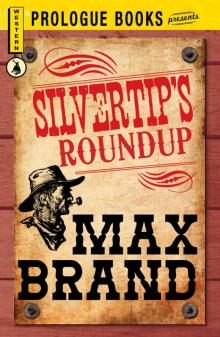 Silvertip's Roundup
Silvertip's Roundup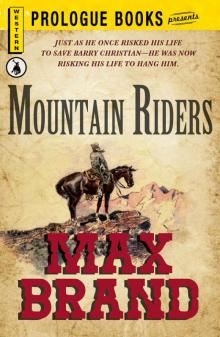 Mountain Riders
Mountain Riders Silvertip (1942)
Silvertip (1942)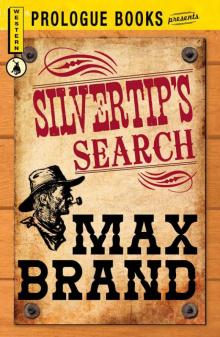 Silvertip's Search
Silvertip's Search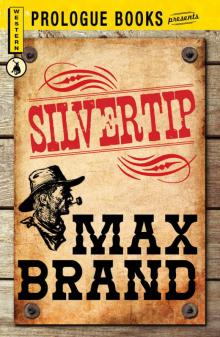 Silvertip
Silvertip Bull Hunter
Bull Hunter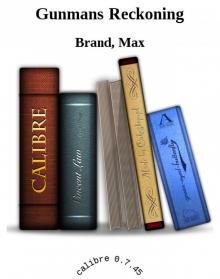 Gunmans Reckoning
Gunmans Reckoning The Seventh Man
The Seventh Man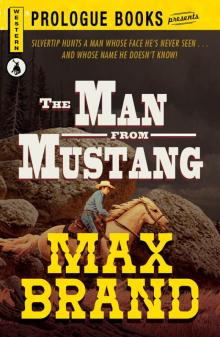 Man From Mustang
Man From Mustang Riders of the Silences
Riders of the Silences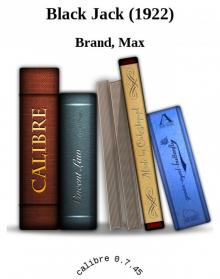 Black Jack (1922)
Black Jack (1922) Way of the Lawless
Way of the Lawless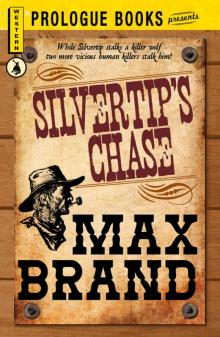 Silvertip's Chase
Silvertip's Chase Trailin
Trailin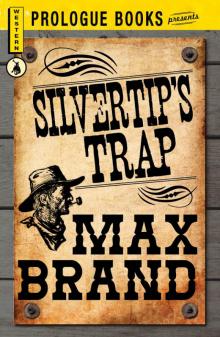 Silvertip's Trap
Silvertip's Trap Ronicky Doone (1921)
Ronicky Doone (1921) The Night Horseman
The Night Horseman the Garden Of Eden (1963)
the Garden Of Eden (1963)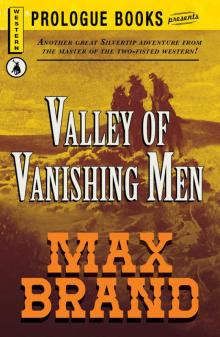 Valley of the Vanishing Men
Valley of the Vanishing Men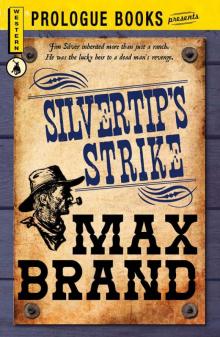 Silvertip's Strike
Silvertip's Strike Black Jack
Black Jack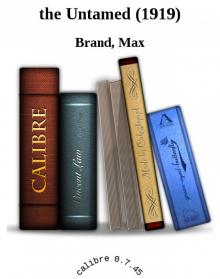 the Untamed (1919)
the Untamed (1919) Way Of the Lawless (1921)
Way Of the Lawless (1921) The Untamed
The Untamed